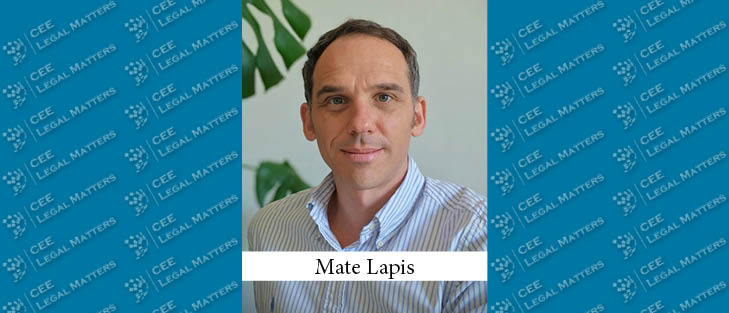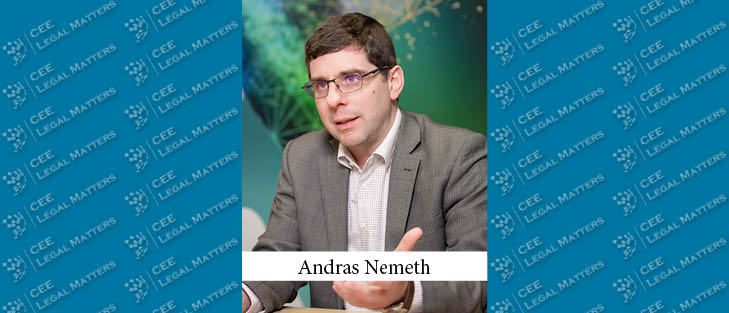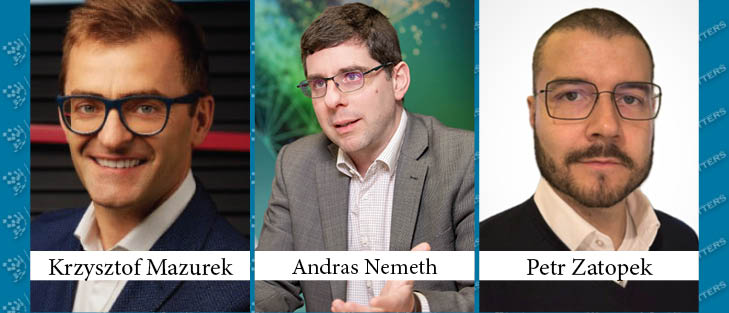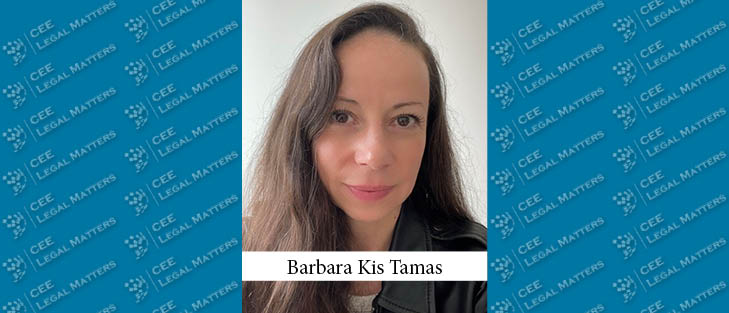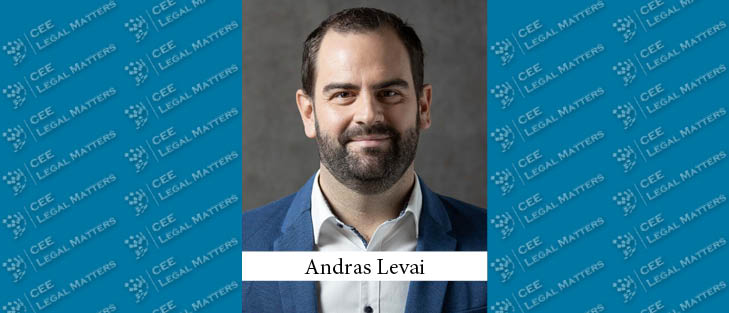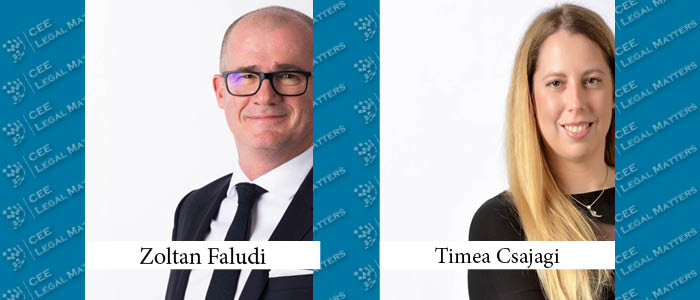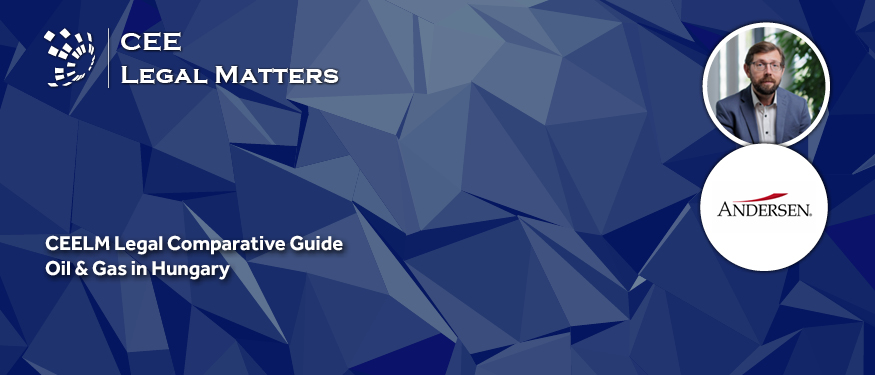The minimum wage (statutory minimum wage) is the amount that an employer must pay to an employee for his/her work, in any case of a full-time job. Guaranteed minimum wage is also considered as a type of minimum wage for jobs requiring at least secondary education or secondary vocational qualifications, hence it is always a higher amount.
Which Workplaces Will Remain Subject to Mandatory Medical Checks?
As of 1 September 2024, not all employers are obliged to carry out compulsory medical examinations of their employees. The Labour Safety Act stipulates that other laws may specify the types of work for which such examinations will be compulsory. The Ministry of the Interior published a decree on the subject on its website at the end of August and it became applicable on 1 September 2024.
A Streamlined Budget for a Fast-Paced Sector: An Interview with Gergely Szekely of Heureka Group
Heureka Group CEE Head of Legal Gergely Szekely provides insights on his in-house legal team’s budget trends and management, considering the challenges inherent in the dynamic e-commerce sector.
A Checklist for Working with External Counsel
Working with external counsel can be a crucial aspect of managing legal issues, especially for companies that need specialized expertise or extra support for their in-house legal team. To make the most of these collaborations, it’s important to follow some best practices that ensure efficiency, alignment with business goals, and cost-effectiveness. Here’s my straightforward guide to help work effectively with external legal experts.
Working as One Group: an Interview with Andras Nemeth of Audax Renewables
Audax Renewables Head of Legal in Hungary Andras Nemeth talks about managing and working as a part of an international team.
Work-From-Home and Its Pitfalls
Before COVID-19, the home office was not mainstream. It was used more as a benefit to avoid the need to get a day off when you had to stay home to wait for “the guy to get the annual meter reading.” Then came the pandemic which forced us to think outside of the box. Suddenly, everyone discovered that remote work could be a viable alternative. Organizations had to come up with technical solutions to make sure that every possible task could be done remotely. The legal profession by its nature was able to adapt quickly to remote work.
The Importance of Cross-Disciplinary Skills in Modern Legal Practices: A GC Summit Summary
More and more legal departments are actively integrating methodologies from disciplines outside the traditional legal sphere, such as project management and even engineering. This evolution is reshaping how legal teams deliver value, emphasizing both strategic impact and operational efficiency. Precision Medicine Group Deputy General Counsel Krzysztof Mazurek, Alpekr Managing Director Petr Zatopek, and Audax Head of Legal Andras Nemeth took a look at the vital role of cross-disciplinary skills in modern legal at the CEE Legal Matters GC Summit, held in Warsaw on April 25-26, 2024.
Is Sectoral Knowledge a Must? An Interview with Marton Hidvegi of METCE Hungary
Focusing on hiring the right skills and looking to build sectoral knowledge in-house, METCE Hungary General Counsel Marton Hidvegi talks about how his organization addresses the training and development of the in-house legal team.
Breaking Barriers: The Power of Cross-Functional Training in Aligning Legal and Scientific Teams
In today’s rapidly evolving business and legal landscape, the importance of collaboration and knowledge exchange between departments has never been more apparent. While traditionally separated by distinct roles and expertise, the integration of legal and scientific teams through cross-functional training has shown to be a transformative approach that drives innovation, fosters collaboration, and ultimately supports overarching business goals.
Facing and Overcoming Challenges Together with the Business
Shortly after the early years of my career, I moved from the attorneys’ world (more precisely, clerks’) into the world of corporate lawyers. The difference between the two became apparent early on. At least for me, the big difference was that, while working as an attorney, I was in contact with the client only in bursts. As an in-house legal counsel, there is essentially a continuous relationship between lawyers and business colleagues. This continuous relationship results in a kind of interdependence – working together both in good and bad times, celebrating joint successes but also facing challenges together.
Implementing Whistleblowing in an International Sports Federation: an Interview with Marianna Erdei of Teqball
“Plan twice to implement once” is Teqball Group Legal Director Marianna Erdei’s approach to implementing new whistleblowing regulations in a manner that is not compliant only with Hungarian law but takes into account the local needs of other jurisdictions.
New Decrees Supplementing the Hungarian ESG Act Entered into Force
In the Hungarian Gazette of 15 August 2024, two new SZTFH (Authority for Regulated Activities) decrees were published, which supplement and further detail the provisions of the Hungarian ESG Act. The first decree on the register of ESG reports, software and qualifiers entered into force on 18 August, while the provisions on the registration of ESG reports and qualifiers enter into force on 16 September.
Modernising Arbitration: HCCI’s Rule Reforms for Global Competitiveness
The amended Rules of Proceedings (hereinafter referred to as the “Rules of Proceedings”) of the Permanent Court of Arbitration attached to the Hungarian Chamber of Commerce and Industry (hereinafter referred to as the “Arbitration Court”) came into force on 15 September 2024. The amended rules are to be applied in arbitration proceedings initiated on or after the date of its entry into force.
Forgo, Damjanovic & Partners Advises on Sale of FoxPost to CVC and EMMA Capital
Forgo, Damjanovic & Partners has advised Wallis Asset Management and Trueway/Finext on the sale of FoxPost to CVC and EMMA Capital. CMS reportedly advised the buyers.
Gabor Kiraly Rejoins CMS as Of Counsel
After spending the last five months as a sole practitioner, former Dentons Partner Gabor Kiraly has rejoined CMS as Of Counsel in its banking, finance, and capital markets team.
Unlocking the Future: The Benefits of a Fully Electronic Land Registry in Hungary
Starting from 1 January 2025, Hungary moves to a fully electronic land registry system following many delays and the potential benefits are transformative. The push for this modernization began in the 2010s, spurred by the success of electronic property registration systems across Europe. Countries like Austria and the Czech Republic have been using electronic land registries since 2001, with Slovakia, Romania, Poland, and most recently Bulgaria following suit in 2021. While these countries maintain paper-based options, the shift toward digital processes has proven advantageous.
2024 HU GC Summit Sneak Peek: Interview with Gabor Simon of DLA Piper
With preparations for the 2024 CEE Legal Matters Hungary General Counsel Summit in full swing, DLA Piper Partner and Head of Energy and Procurement in Budapest Gabor Simon shares his thoughts about the upcoming event and what he’s looking forward to the most.




